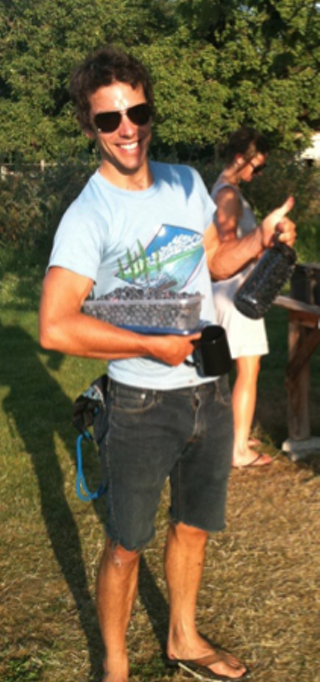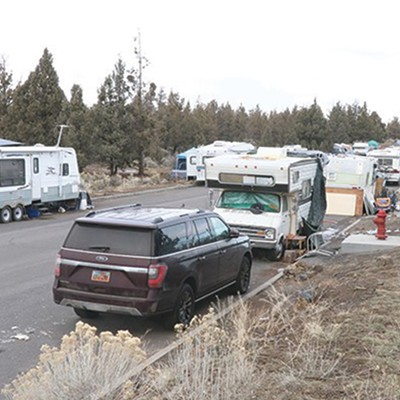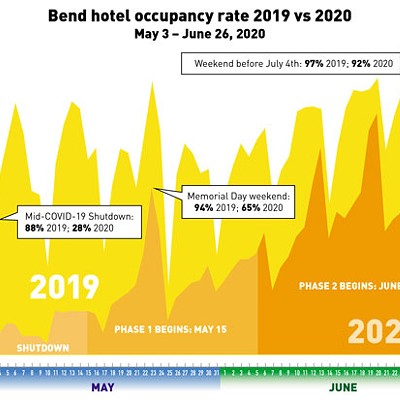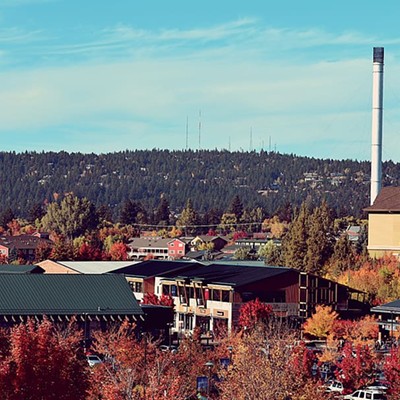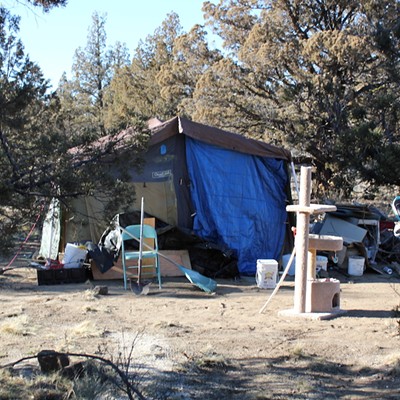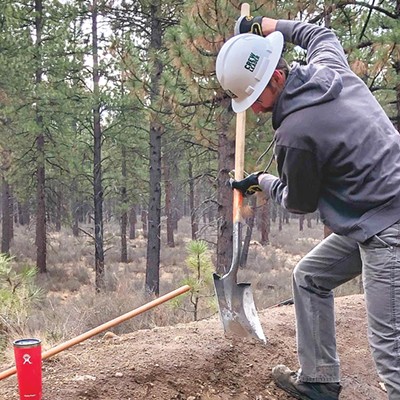Yes, Bend's water table greatly benefits from the feet of snow that each season fall and melt in the Cascades, but that doesn't mean Central Oregon has water to waste. In the city's ongoing quest to protect and preserve one of the area's most tremendous resources, it has created and hired for a new position—Water Conservation Program Manager.
Michael Buettner, a midwesterner who has worked a similar water conservation position in the southwest, is Bend's pick. We talked with Buettner last week about conserving water, desert landscaping and, of course, drinking Bend beer—another precious commodity and one that greatly benefits from the clean Cascadian streams west of town.
The Source: Michael Buettner. Are you the famous Australian professional rugby league footballer of the late 90s?
Michael Buettner: No. There are a few of us out there, but I've never met this one. Sounds like a great guy though.
But you're new here, right? What are you doing to get up to speed on water issues in the high desert?
You're right. I was born and raised in the upper midwest. But I spent the last seven years in the suburbs of Phoenix, Ariz., so water issues aren't anything new to me. In fact, the central Oregon landscape is actually a perfect blend of temperate-low water plants.
Prior to my move to Bend earlier this year, I served as the Environmental Resources Supervisor for the city of Peoria, Ariz. Getting up to speed here is really more a matter of meeting our local partners and engaging with the public. That said, our website www.waterwisetips.org is a great resource for anyone looking to learn more about water conservation.
Your title is "Water Conservation Program Manager." What does that mean? What sort of programming will you be doing?
I manage all of the city's water conservation efforts. This means that I educate the general public on how we use our water as a community and how we can conserve it. I may be working with local landscape professionals on implementing smart irrigation technologies at a site one day and working with a facility manager on low-flow plumbing devices the next.
I also act as the city's point person for all of our water conservation partners. The city has done a great job over the years developing local partnerships with groups such as Bend-La Pine School District, Bend Park and Recreation District, and Oregon State University. We also have several national partners such as the Environmental Protection Agency's WaterSense group.
What's your first project or top priority in your new position?
One of the early projects that I'm working on is our Fix A Leak Week awareness campaign. Fix A Leak Week runs March 17 through March 23 and is designed to bring attention to the 10,000 gallons per year on average that are leaked from American homes. It's really a fun campaign that we want Bendites to become familiar with.
Bend's population is an interesting and diverse mix of folks. For every owner of a big, grassy, green lawn there's a conservation-minded, xeriscaping environmentalist. How will you approach each? How do you straddle the line between advocate and zealot?
My focus is always on resource conservation and efficiency. It isn't to judge someone by whether or not they have a big grassy lawn or xeriscape. Quite honestly, I've seen plenty of xeriscape installations that get watered more than an efficiently watered lawn. The type of landscape one chooses is a value decision so that isn't something I spend a lot of time trying to change once it is already installed.
However, I will educate the homeowner on the pros and cons of a grass landscape versus xeriscaping. Grass lawns require more maintenance, which generally means more money, more waste, and yes—more water. I recommend that grass lawns be small in size and watered with a well-designed irrigation system that is adjusted and properly maintained. Typically, grass lawns have irrigation systems that are in dire need of renovation and repair. That's why we see water on the streets and sidewalks.
Currently the City of Bend charges substantial flat fees for water and sewer service, with little-to-zero built-in incentive for those who conserve water and use responsibly. Mayor Jim Clinton and others have been vocal in their support for a volume-based water bill. Is this an issue you'll wade into? Where do you stand on volume-based water charges?
I wouldn't say that there is "little-to-zero" incentive to conserve with our current rate structure. One of the things we always say in the conservation world is that "water isn't all you'll save ..."
Those conserving water are saving energy, reducing their carbon footprint, and leaving water in the river or aquifer. However, the economic incentive tied to water conservation is generally the one people respond to the most.
If Bend's city council decides that they'd like to explore increasing that financial incentive through rate structuring I think the administrative staff and I would certainly support that study.
Clean water, available water is a key ingredient for quality beer (one of four). Do you have a favorite Bend brew?
Great question! There are a lot of great beers being brewed here. At this early stage I'd say Mirror Pond is my standby, but I'm always on the lookout for something I haven't yet tried.

